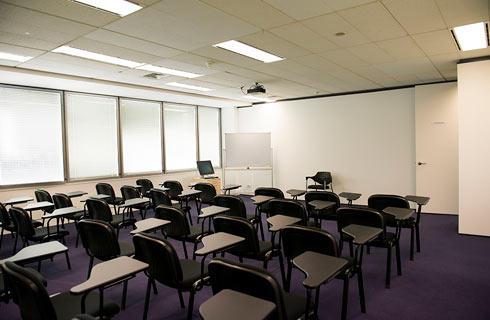Bachelor of Arts in Criminal Justice

学历文凭
Bachelor Degree

专业院系
College of Arts and Sciences

开学时间

课程时长

课程学费

国际学生入学条件
If you have attended ANY college or university:
Official transcripts from ALL colleges or universities attended MUST be submitted to NKU as part of the application, regardless of wether you want to receive transfer credits. Failure to include university studies on an application, whether the university was in the U.S. or abroad, can result in the immediate rescinding of an admission offer.
The Kentucky Council on Postsecondary Education (CPE) requires students to meet readiness standards to enter Kentucky public colleges and universities. If you standardized test scores fall below CPE college readiness standards, you will be required to take a College Placement Test to determine proper placement in English, math, and/or reading classes priori to course registration.
CPE Placement Standards
ACT: English 18, Math 19, Reading 20
SAT: Evidence-Based Reading and Writing 480, Math 500
If your scores fall below the above mentioned, you must take a College Placement Test(s) in each of the areas in which you did not meet the requirement. You will NOT be able to register for classes until your College Placement Test(s) have been taken. The College Placement Test is only available to admitted students. You may choose to re-take the SAT or ACT test to raise your subject scores.
TOEFL (iBT): Composite score of at least 79, with a minimum of 14 in reading
TOEFL (PBT): Composite score of at least 550, with a minimum of 48 in reading
IELTS: Composite score of at least 6.5, with a minimum of a 5.5 in Reading and 5 in Writing
Duolingo English Test: Minimum score: 115
SAT: Evidence-Based Reading & Writing score of 480 or higher, or 25 or higher on Writing and Language Test, and 26 or higher on Reading Test
ACT English: 18, Reading: 20
Pearson PTE: Composite score of at least 55
Freshmen applicants with a 2.75 and greater unweighted high school GPA will be offered admission regardless of ACT/SAT scores.
Freshmen applicants with a 2.5-2.749 unweighted high school GPA are not required to submit ACT/SAT scores. However, submitting test scores may allow for direct placement into their major if their application reveals zero or one overall deficiency*. If the applicant chooses not to submit test scores at all, or if their application reveal 2 or greater deficiencies*, they will be admitted into our Pathfinders Program.
Freshmen applicants with a 2.0-2.49 unweighted high school GPA are not required to submit ACT/SAT scores and will be admitted into our Pathfinders Program.
Freshmen applicants must have a 2.0 unweighted high school GPA to be considered for admission.
IDP—雅思考试联合主办方

雅思考试总分
6.5
- 雅思总分:6.5
- 托福网考总分:79
- 托福笔试总分:550
- 其他语言考试:Pearson PTE: Composite score of at least 55, Duolingo English Test: Minimum score: 115
CRICOS代码:
申请截止日期: 请与IDP联系 以获取详细信息。
课程简介
相关申请
 预科
预科 奖学金
奖学金 实习机会
实习机会 在校学习
在校学习 跨境学习
跨境学习 校园授课-线上开始
校园授课-线上开始 在线/远程学习
在线/远程学习
开学时间&学费
学费信息仅供参考,请与IDP联系以获取详细信息
| 开学时间 | 时长 | 学费 | 地点 |
|---|
关于北肯塔基大学

北肯塔基大学(NKU)位于肯塔基州的海兰高地,是一所备受瞩目的公立院校。该大学成立于1968年,在提供高质量学位课程方面拥有50年传统,并以其学术表现和研究产出的质量而闻名。NKU提供令人印象深刻的本科和研究生课程,横跨七个学术学院和80多个单独的学科领域。该大学特别注重本科生的研究和体验式学习,这意味着NKU的毕业生发展了多种技能,为专业就业或进一步的研究生学习做好了充分准备。每年春天,学校通过组织学生进行学术庆祝活动来肯定这种做法。该大学的创新和协作校园位于420英亩的景观场地内,坐落在辛辛那提市中心和海兰高地山丘之间。该地区以极其安全著称,是一个理想的生活和学习场所,为学术和个人发展提供了许多机会。该大学有大约16000名学生,其中12000名是本科生。它是一个多元化和包容性的社区,学生来自50多个国家/地区。NKU有大约60000名活跃的校友,他们在各个领域都取得了成功,包括新闻、体育、商业和政府。
本校相关课程

Bachelor of Science in Construction Management
学历文凭
Bachelor Degree
开学日期
课程费用总额


Bachelor of Science in Business Administration - Marketing
学历文凭
Bachelor Degree
开学日期
课程费用总额


Bachelor of Arts in Biological Sciences
学历文凭
Bachelor Degree
开学日期
课程费用总额


Bachelor of Arts in Electronic Media and Broadcasting
学历文凭
Bachelor Degree
开学日期
课程费用总额


Master of Business Administration
学历文凭
Masters Degree
开学日期
课程费用总额


Master of Arts in Interdisciplinary Studies
学历文凭
Masters Degree
开学日期
课程费用总额

其他相关课程

刑事司法文凭
 卡莫森学院
卡莫森学院学历文凭
Bachelor Degree
开学日期
课程费用总额


刑事司法文学士
 温尼伯大学
温尼伯大学学历文凭
Bachelor Degree
开学日期
课程费用总额


社区与司法服务文凭
 圣劳伦斯学院
圣劳伦斯学院学历文凭
Bachelor Degree
开学日期
课程费用总额


社区与司法服务文凭
 凯布莱恩学院
凯布莱恩学院学历文凭
Bachelor Degree
开学日期
课程费用总额


刑事司法文学士(荣誉)
 温尼伯大学
温尼伯大学学历文凭
Bachelor Degree with Honours
开学日期
课程费用总额


刑事司法文学士
 温尼伯大学
温尼伯大学学历文凭
Bachelor Degree
开学日期
课程费用总额










 美国
美国